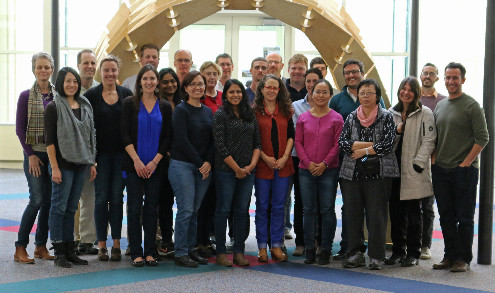The Belmont Forum, START, Future Earth, and regional partners organized two workshops on conducting transdisciplinary (TD) research in the first quarter of 2017. The workshops focused on advancing principles of co-design and co-production in the natural, social, and engineering sciences that address complex sustainability challenges associated with the Belmont Challenge. The first workshop was held at the Global Institute of Sustainability at Arizona State University during February 22-24, 2017. The second workshop was held at Sustainability, Energy and Environment Complex at the University of Colorado Boulder during March 1-3, 2017.
These workshops aimed to advance skill development in TD research, as well as increasing aptitude for developing proposals with strong TD elements, which is a cornerstone of all the Belmont Forum’s multi-year Collaborative Research Action (CRA), including the recently launched call on urbanization and the food-energy-water nexus. Learning activities within each workshop were organized around a regionally relevant case study on the food-energy-water nexus.

The workshops were three-day events with approximately 25 participants per workshop. Specific learning objectives included:
- Understand TD research in the context of urbanization and the food-energy-water nexus
- Identify opportunities and barriers related to TD research and application
- Explore how to broaden impacts by adopting TD process design
- Acquire usable skills and competences on TD research, including building a TD team, collaborative problem framing, TD settings and roles of researchers and practitioners, integrative approaches and methods, and evaluating TD process and scientific and societal impacts.
If you would like to be part of this growing community, please register on Future Earth’s Open Network and then join the Transdisciplinary Research and Application community. You can contact Sarah Schweizer (sschweizer@start.org) for further details.


